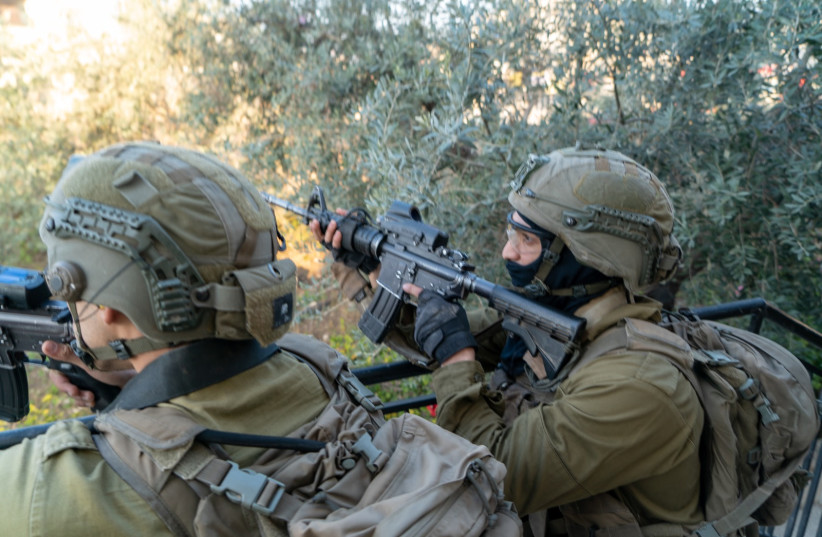When you have a child who’s serving in a special forces unit in the IDF, there are things about which you’d like to shout from the rooftops, just to get them off your chest, but you know you can’t.
I want to tell you where he’s serving and what he’s doing, but I can’t.
I want to tell you about his trials and tribulations – or those that he’s shared with me, at least – but I can’t.
I want to tell you how it feels to know that your son is serving in a place where trouble erupts night after night – but I can’t.
I want to tell you what it feels like to wake up in the night, knowing your son is out there, on some operation or other; that feeling of dread that creeps in as you check your phone for news, or just to see if anything is happening – but I can’t.

I want to tell you what it’s like when you go on Twitter and see tweets about IDF movement in the place where your son is based, all the while, knowing your son is there, on the front line – but I can’t.
I want to tell you what it’s like to wake up the following morning (if you manage to get back to sleep) and check your son’s WhatsApp to see when he was last online – but I can’t.
I want to tell you what it feels like when you see that your son has been offline for ages, and wait, hour after hour for a message from him, just to say he’s alive – but I can’t.
I want to tell you what it’s like to discuss with other parents who have been through it to hear the words “don’t check the papers – if anything happens, you’ll know about it first,” but I can’t.
Gut-wrenching horror
I want to tell you about the gut-wrenching horror that you feel when your son has been out all night on a mission, and is so exhausted by morning, that he forgets to message you to say he’s alive – but I can’t.
I want to tell you about the mixture of emotions that courses through your body when you see your child for the first time after he’s been away for weeks on the front line, putting his life in danger night after night – but I can’t.
I want to tell you what it’s like to sit with your son on a rare Shabbat afternoon when he’s home, as he pours his heart out to you about the stress he’s under and the fear he suppresses night after night in order to enable him to do his job – but I can’t.
I want to tell you what it’s like to hear your son tell you how he watched his friend being dragged into his room by his feet, bleeding from his head, having been hit in the face by shrapnel from a fragmented bullet, as it turned out.– but I can’t.
I want to tell you how it feels when you say goodbye to your son when he goes back to base on Sunday morning; that feeling that something bad is going to happen and you pray it won’t happen to your son, and then you feel bad for praying that someone else will face a tragedy – but I can’t.
I want to tell you what it feels like when you hear that someone in your son’s unit was killed – that crushing feeling of relief and grief all mixed together – but I can’t.
I want to tell you how worried you are for your son – how will the things he’s seen and done affect him – but I can’t.
“He’s been through so much already, how can he take any more?” These words often ring through my head, but of course – I can’t tell you that.
I want to tell you how I just want to hug him tight when he comes home and not let him go, but I can’t as I have to let him; it’s his duty – it’s what he signed up for.
I want to tell you what it’s like when your son finishes his placement in one of the most violent places on earth and starts another in a quieter area; that palpable relief you feel as you no longer spend your nights looking at your phone and scouring Twitter – but I can’t.
I want to tell you about the anxiety you feel when he’s winding down his service, in case his head drops and he becomes less alert. I can’t tell you how many times I told my son to remain vigilant, because quite honestly, I lost count.
I want to tell you about the tangible relief when your son finally gets to the end of his service and hands back all of his equipment – but I can’t.
I want to tell you about the joy you feel when he walks through the door, midweek, in his civvies, as he’s no longer on duty, and how lovely it is just to have him around, unencumbered by the thought of having to “go back.”
But most of all, I want to tell you how proud I am of him – now that – I can tell you.
The writer is a former lawyer from Manchester, England. She now lives in Israel where she works at The Jerusalem Post.
